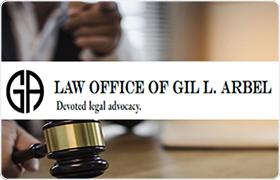Toluca Lake RICO Act Lawyer, California
Sponsored Law Firm
-
 x
x

Click For More Info:
-
Law Office of Gil L. Arbel
28541 Conejo View Dr. Agoura Hills, CA 91301» view mapCriminal Defense Law Devoted Legal Advocacy
At the Law Offices of Gil L. Arbel, we understand that legal matters can be intimidating and complicated, which is why it is crucial to take an informed approach.
800-961-3980
Gina Tennen
✓ VERIFIEDCriminal, Military, Juvenile Law, White Collar Crime, RICO Act
LibertyBell Law Group consists of a group of elite criminal defense attorneys who have become some of the most sought after lawyers in the nation. Our... (more)
Shaun Khojayan
Criminal, White Collar Crime, RICO Act, Felony
Status: In Good Standing Licensed: 26 Years
FREE CONSULTATION
CONTACT Gil L. Arbel Agoura Hills, CA
Gil L. Arbel Agoura Hills, CA Practice AreasExpertise
Practice AreasExpertise

